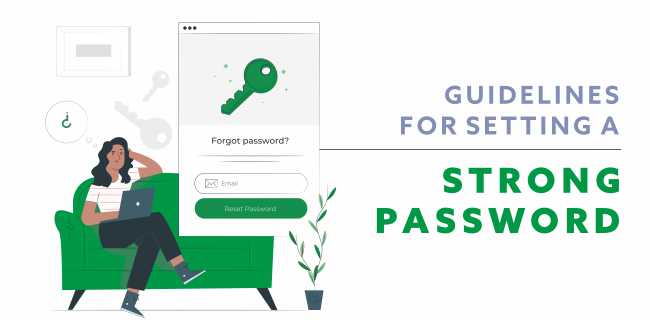Background - Far too many businesses set a password that can be easily hacked. Here are few guidelines and tips on setting a strong password.
‘Always set a strong password’ - This is something we have been hearing since the start of the internet. But how many of us implement it? Do we know what a strong password is? A recent survey reveals about 3.6 million users set their password as ‘password’.
Similarly here are ten most commonly used passwords that you should avoid using
- password
- 1234567
- 12345678
- 12345
- iloveyou
- 111111
- 123123
- abc123
- qwerty123
- 1q2w3e4r
- admin@123
What is even more surprising is that these passwords are not just set for personal data but are also used in business organisations that may have even more confidential data. Hackers are in search of such type of businesses or personal data that have set an easy password. By setting such type of passwords, we are not just risking our data but are also making a hacker’s task much easier.
According to a 2020 survey, Cyber-attacks including Ransomware attack has been on the rise. As many as 66% of the hacked businesses paid the asked ransom to get back their data. And only one third said they had a backup in place and could retrieve their data without having to pay any ransom.
It may seem easier to blame the IT department for not having enough security in place. Still, more than 80 % of the time, these cyber-attacks could have been avoided without spending extra on security systems and by merely setting a strong password that cannot be guessed.
So what exactly is a secure password? How do I know my password is un-hackable?
Here are some guidelines for setting a strong password -
- A good password must be a minimum of 8 characters long.
- Password must be a combination of uppercase, lowercase letters, numbers and special characters.
Avoid passwords that -
- Spell words from the dictionary
- Contain any name either yours or others related to you
- Contain birthday dates or any such numbers that can be guessed
Few tricks to set a tough password and to ensure you remember it
-
Set a song as a password!
No, I’m not kidding. You could select any song of your choice, pick up the first letter of every word, add some special characters to it some numerical and voila! You have your ten characters long password that you will never forget. Only you know what the password means, and hence nobody can guess it. For example, Jgmajh@7752, this might not make sense to you, but for me, it does because I know I have used all the initial letters of our National Anthem. Amazing, right? It doesn’t always have to be a song; it can be a sentence or anything very personal.
-
Use a Password Manager
There are many Password Managers available like LastPass, Keeper, etc. With these tools, you can set any gibberish password, add a few special characters and numbers. You don’t have to stress over remembering it as you can save it in these password managers.
In conclusion, setting a strong password is the easiest and the cheapest measure you can take towards your data security. Awareness about setting a strong password is important as more and more businesses are shifting towards cloud. And software like Tally, contain very important and confidential data, thus it becomes crucial for all Cloud users especially Tally on Cloud users to set a robust password using the above suggested guidelines.


